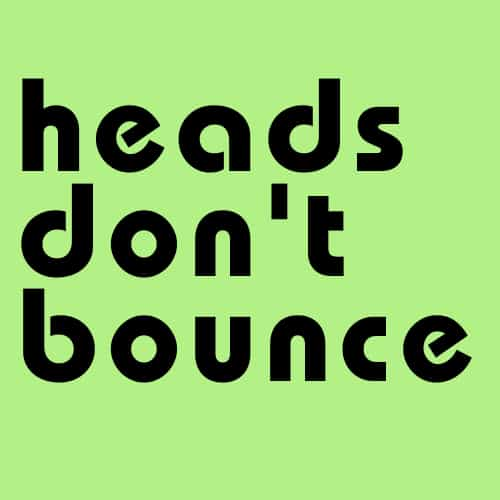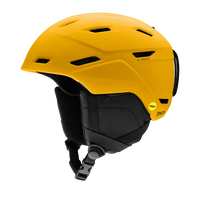Do Beginner Skiers Need Helmets?
Trips to the snow as a non-skier can be fun-filled days of snowball fights and building snowmen. All good stuff, but after a few visits you start to feel the urge for something more than building yet another snowman.
Skiing on the fresh fallen snow will surely provide the adrenaline rush you yearn. Of course, if it’s your first time strapping on skis, there’s a bit of a learning curve, not to mention the question of do beginner skiers need helmets?
Some people will suggest that there’s really no need for beginners to wear a helmet when skiing. But new skiers can lose control, slip over, or find themselves in the path of a speeding snowboarder. Play it safe: wear a helmet!
Page Content
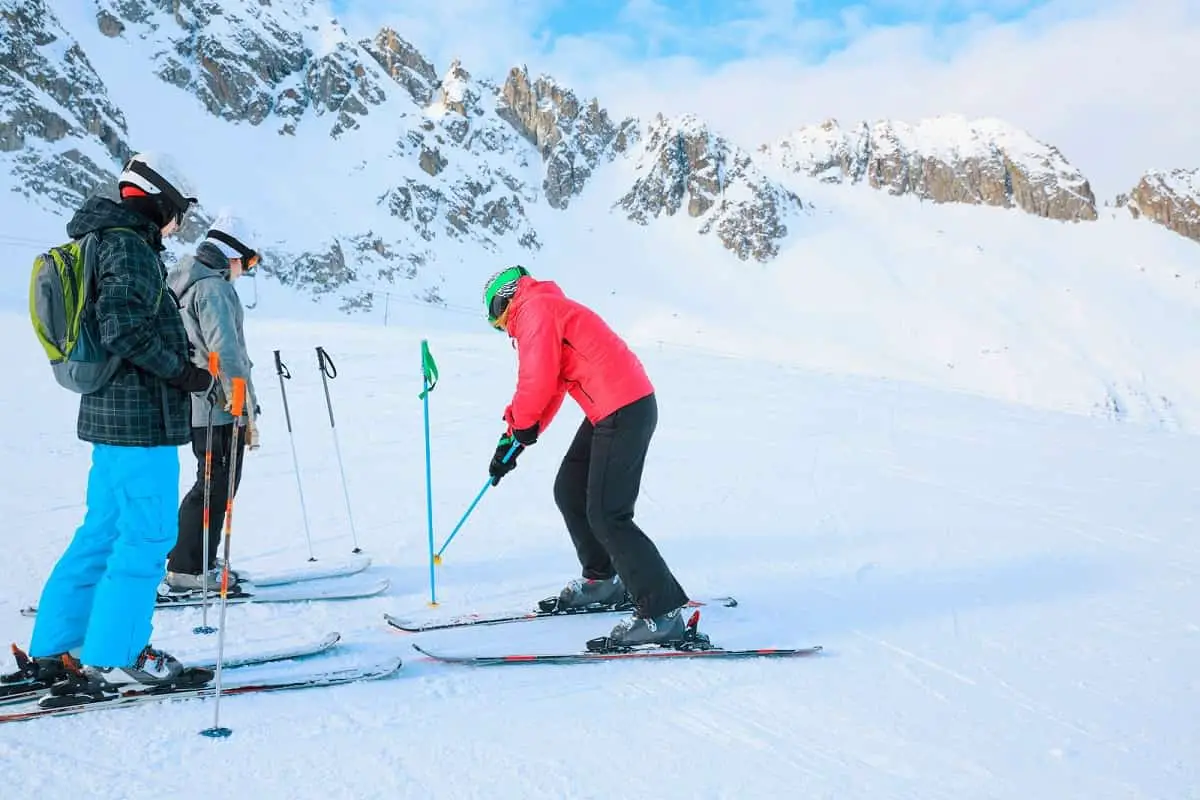
Disclosure: As an Amazon Associate, we earn from qualifying purchases. Disclosure Statement.
Are Helmets Mandatory For Skiing?
There aren’t any laws at the federal level that require skiers to wear helmets. But, some states do have helmet laws that may apply to younger skiers. In addition, some ski resorts also have their own rules regarding the wearing of ski helmets.
However, it’s not really a matter of whether or not you are breaking the law but more a matter of personal responsibility and common sense.
RECOMMENDED: Ski & Snowboard Helmets With Visors
Skiing down a slope at 15 miles per hour with a sudden stop into a tree can cause internal injuries. Protecting your head and heart is crucial.
Do Beginner Skiers Need Helmets?
While some may think that beginners wearing a helmet when skiing is a bit of an overkill, there are several good reasons for wearing one anyway.
Many experienced skiers would shrug off the suggestion that a beginner skier would need a helmet when skiing, because they move around so slowly, getting used to the balance and feel of the skis.
Other veterans would say the opposite. There’s no telling what a newbie might get up to and head protection is paramount. If you see a beginner skier flying down the slopes, they’ve either lost control or they’re not a beginner.
Some will get the hang of it pretty quickly, finding their way to the intermediate slopes in no time. Others, however, will spend the entire day practicing how to brake, otherwise known as snow plowing or a “snow plow turn”.
The NSAA (National Ski Areas Association) reported 46 deaths of skiers/snowboarders in the 2022-2023 season. These incidents were due to speed, loss of control and collisions with objects.
Even though skiing deaths may not be that common, it’s a statistic worth thinking about for both novice and experienced skiers.
SUGGESTED: Ski & Snowboard Helmets For Big Heads
This content was originally published on headsdontbounce.com. If it appears on another website, it is a violation of the copyright owned by headsdontbounce.com.
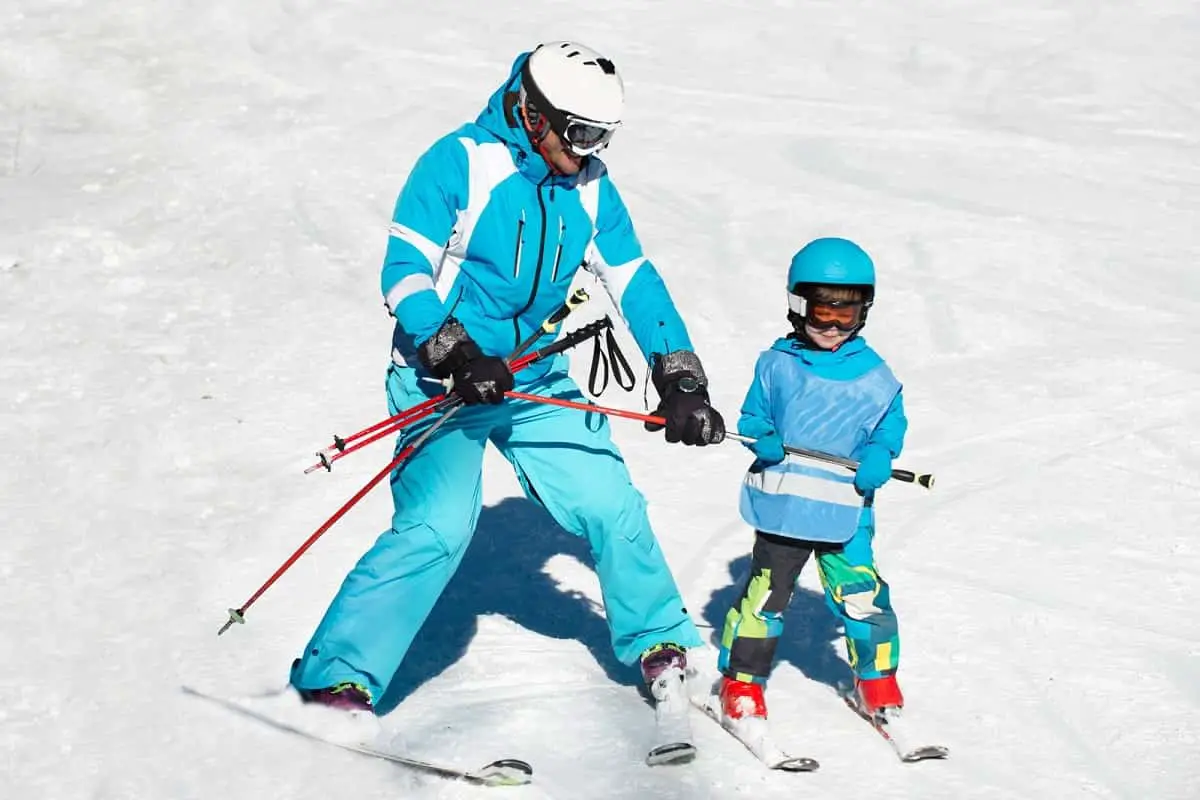
Why Wear A Ski Helmet?
There are several reasons for wearing a helmet when skiing, and not all of them are even safety-related. Whether you’re a beginner or experienced skier, a ski helmet can serve you well.
- Safety: Helmets reduce head injury severity.
- Surprisingly enough, they help keep your ears warm.
- You can mount cameras on it, like a Go Pro.
- They help your goggles fit better.
- They make you stand out on the slopes better.
- They can house smart communications systems.
There are more reasons but for the sake of time and space, those are the most important and popular reasons to wear a helmet when skiing.
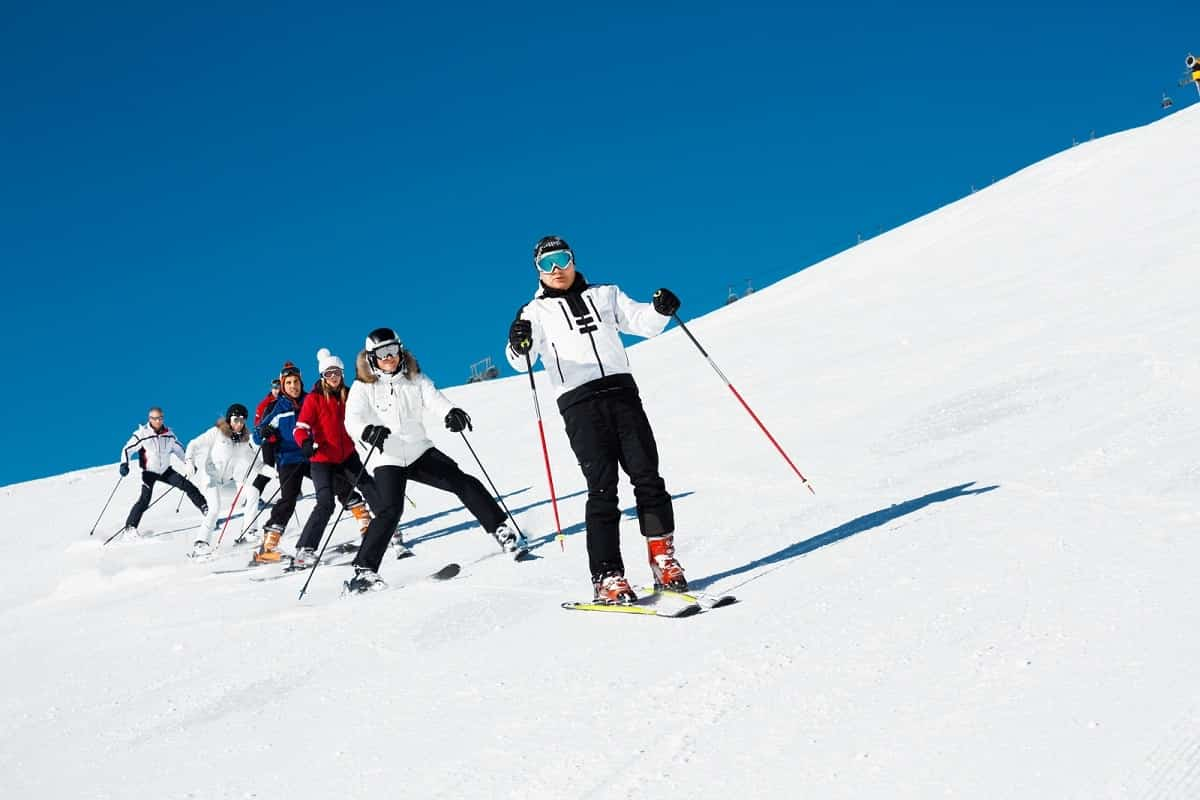
What Percentage Of Skiers Wear Helmets?
According to the NSAA, 88% of all skiers wore helmets during the 2022-2023 skiing season. Helmet usage by skiers age 17 and under was 96%, and 98% of children aged 10 – 14 years.
Not only is that good for safety purposes, but it also makes those who don’t wear helmets stand out.
SUGGESTED: Ski & Snowboard Helmets With Bluetooth
One way to get people to wear a helmet when skiing is to make them stick out like a sore thumb. Wearing a helmet becomes more motivating when it’s influenced by peer pressure.
Can You Ski Without A Helmet?
You can certainly ski without a helmet in most states and many resorts. In fact, you will probably find that most ski resorts won’t spend any time harping on you about it. You can also parachute without parachute straps but it’s not like that makes any sense.
Will A Bike Helmet Work For Skiing?
Though probably not as effective as you would like, who’s going to stop you? That said, you would be better served with a dual certified ski/bike helmet. A much better choice, and legal for both activities.
If you did have your heart set on using a cycling helmet, you will learn more in our article ‘Can You Wear A Bike Helmet Skiing‘ for suggestions about that.
How To Wear A Ski Helmet
Wearing a ski helmet is not much different than putting on any other type of helmet. The first thing that you want to do is find one that fits you tight, snug, and comfortably. You don’t want it to give you headaches but you want it to be secure.
RECOMMENDED: Ski & Ski Helmets with MIPS
After you find the best fitting helmet, you need to ensure that the chin strap is tight and stable underneath your chin. To be assured of a proper fit, take a look at our article ‘How Should a Ski Helmet Fit‘ for more specific advice.
VIDEO: How To Measure For A Ski Helmet
How To Wear A Ski Helmet With Long Hair
If you have long or thick hair, all hair does is change the shape and size specs for a helmet. If you wear your hair up, when you find the right fit, keep it that way. The same goes for if you wear your hair down when you fit your helmet.
In other words, if you have long or thick hair when you buy your helmet, and then get a haircut, it will be likely be too loose.
All Things Considered
Beginner skiers don’t have to wear helmets when skiing, however, it’s advisable to wear one, mostly for safety purposes. However, feel free to make it personal as well, with your own design art and mountable cameras. Who said wearing a safety helmet had to be boring?
I hope we have covered the question of ‘do beginner skiers need helmets’ to your satisfaction. If you enjoyed this article, take a look at the suggested reads below for some more interesting reads!
If you liked this post, why not share it with your friends.Related Reads:
